Home

Diet & Nutrition

The Ultimate Guide on Cabbage During Pregnancy Benefits and Precautions
In this Article
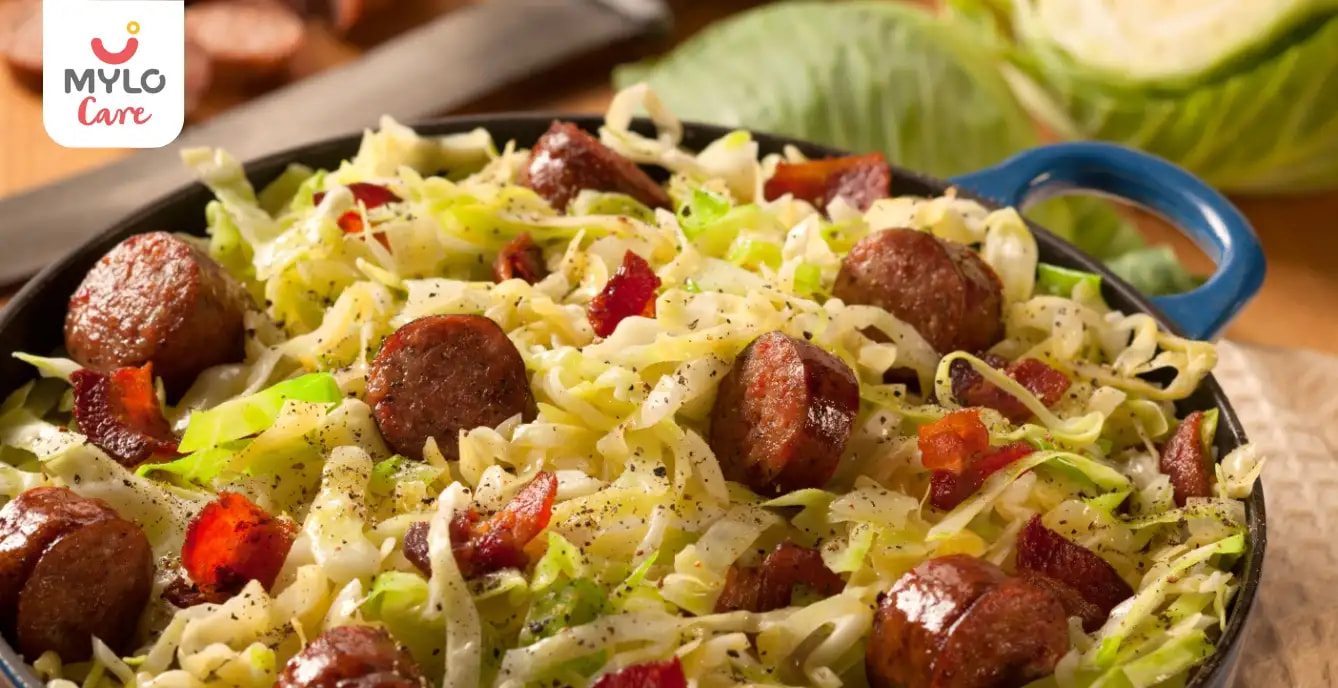
Diet & Nutrition
The Ultimate Guide on Cabbage During Pregnancy Benefits and Precautions
Updated on 7 March 2024
During pregnancy, it is essential to pay attention to one's diet and ensure the intake of nutritious foods that support the health of both the mother and the baby. Cabbage, a leafy green vegetable, is often a topic of discussion among expectant mothers. With its unique taste and numerous health benefits, many wonder if it is safe to consume cabbage during pregnancy. In this article, we will delve into the subject of cabbage during pregnancy, exploring its benefits, potential side effects, and important precautions to consider.
Can we eat cabbage during pregnancy?
The answer is yes, pregnant women can safely consume cabbage as part of a balanced diet. Cabbage is rich in essential vitamins, minerals, and dietary fiber, making it a healthy choice during pregnancy. However, it is crucial to ensure that the cabbage is thoroughly washed and cooked properly to eliminate any potential risks associated with bacteria or parasites.
Cabbage is a versatile vegetable that can be enjoyed in various forms such as salads, soups, stir-fries, or even fermented as sauerkraut (sour cabbage). It provides a refreshing crunch and adds a delightful flavor to any dish. Incorporating cabbage into a pregnancy diet can contribute to the overall well-being of both the expectant mother and the developing baby.
What are the benefits of eating cabbage in pregnancy?
Let us understand the benefits of consuming cabbage in pregnancy:
1. Rich in essential nutrients
Cabbage is a nutritional powerhouse, packed with essential nutrients that are beneficial during pregnancy. It is an excellent source of vitamin C, which supports the immune system and helps in the absorption of iron. Additionally, cabbage contains folate, a crucial nutrient for fetal development and the prevention of birth defects. The presence of vitamin K in cabbage contributes to proper blood clotting and bone health.
2. Promotes digestion
Digestive issues such as constipation are common during pregnancy due to hormonal changes and the growing uterus. Cabbage is high in dietary fiber, which aids in digestion and helps prevent constipation. The fiber content also promotes a healthy gut, preventing gastrointestinal disorders and ensuring the efficient absorption of nutrients.
3. Provides antioxidants
Antioxidants play a vital role in combating oxidative stress and reducing the risk of chronic diseases. Cabbage contains a variety of antioxidants, including flavonoids, polyphenols, and anthocyanins, which help protect the body's cells from damage caused by free radicals. These antioxidants also contribute to boosting the immune system and reducing inflammation, providing a healthful environment for both the mother and the developing baby.
4. Supports bone health
Pregnancy places increased demands on the mother's skeletal system, as the baby requires calcium for proper development. Cabbage contains calcium, magnesium, and vitamin K, all of which are essential for maintaining healthy bones. Regular consumption of cabbage during pregnancy can help meet the increased calcium needs and ensure proper bone development for both the mother and the baby.
5. Aids in weight management
Weight gain is a natural part of pregnancy, but excessive weight gain can lead to complications. Cabbage is a low-calorie and low-fat vegetable that can be included in a well-balanced diet to support healthy weight management during pregnancy. Its high water content also helps promote a feeling of fullness, preventing overeating and unnecessary weight gain.
You may also like: Cauliflower During Pregnancy: Effects, Risks & Benefits
What are the side effects of eating cabbage during pregnancy?
While cabbage is generally safe to consume during pregnancy, excessive intake or certain preparations may lead to some side effects. It is important to be aware of these potential issues to ensure a healthy and enjoyable pregnancy journey.
1. Gas and bloating
Cabbage belongs to the cruciferous vegetable family, which can cause gas and bloating in some individuals. This is due to the presence of complex sugars that are difficult to digest. Pregnant women who are prone to digestive discomfort may experience increased gas and bloating after consuming cabbage. To minimize these side effects, it is advisable to cook cabbage thoroughly and consume it in moderation.
2. Allergic reactions
In rare cases, individuals may be allergic to cabbage or other cruciferous vegetables. Allergic reactions can manifest as skin rashes, itching, swelling, or difficulty breathing. If any allergic symptoms occur after consuming cabbage, it is important to seek medical attention immediately. Pregnant women with known allergies should exercise caution and consult with their healthcare provider before including cabbage in their diet.
3. Interference with thyroid function
Cruciferous vegetables, including cabbage, contain compounds known as goitrogens. These compounds can interfere with thyroid function by inhibiting the absorption of iodine. While this is generally not a concern when cabbage is consumed in moderation, excessive intake or individuals with pre-existing thyroid conditions may experience adverse effects. Pregnant women with thyroid issues should consult their healthcare provider regarding the consumption of cabbage.
4. Increased risk of heartburn
Heartburn is a common discomfort experienced during pregnancy, especially as the growing uterus puts pressure on the stomach. Some individuals may find that consuming cabbage exacerbates heartburn symptoms due to its high fiber content. To reduce the risk of heartburn, pregnant women can try cooking cabbage thoroughly, opting for smaller portions, or consuming it in the form of fermented sauerkraut.
5. Contamination risks
Raw vegetables, including cabbage, can be a potential source of foodborne illnesses if not properly handled or washed. Bacteria such as E. coli or parasites like toxoplasma can be present on unwashed cabbage. It is crucial to wash cabbage thoroughly under running water and cook it properly to eliminate any potential contamination risks. Pregnant women should also be cautious when consuming cabbage in salads or raw preparations from food establishments with questionable hygiene practices.
You may also like: Arbi in Pregnancy: The Ultimate Guide to Benefits and Risks
Precautions to follow while eating cabbage during pregnancy
To ensure a safe and healthy consumption of cabbage during pregnancy, it is important to observe certain precautions. By following these guidelines, expectant mothers can enjoy the benefits of cabbage without any unnecessary risks.
1. Thoroughly wash cabbage
Before cooking or consuming cabbage, it is crucial to wash it thoroughly under running water. This helps remove any dirt, bacteria, or pesticide residues that may be present on the surface. Rubbing the leaves gently with your hands can further enhance the cleaning process. Proper washing significantly reduces the risk of foodborne illnesses during pregnancy.
2. Cook cabbage properly
To eliminate potential risks associated with bacteria or parasites, it is important to cook cabbage properly. Whether steaming, boiling, stir-frying, or baking, ensure that cabbage reaches a safe internal temperature for consumption. Proper cooking not only enhances the flavor and texture but also ensures the destruction of any harmful microorganisms.
3. Consume in moderation
While cabbage is a nutritious vegetable, it is advisable to consume it in moderation during pregnancy. Excessive intake of cabbage can lead to digestive discomfort, gas, or potential interference with thyroid function. Including a variety of other vegetables in the diet ensures a balanced intake of nutrients and minimizes any potential risks associated with excessive cabbage consumption.
4. Opt for organic cabbage
To reduce exposure to pesticides and other chemical residues, it is recommended to choose organic cabbage whenever possible. Organic farming practices minimize the use of synthetic pesticides, ensuring a healthier and safer vegetable for consumption. If organic cabbage is not readily available, thoroughly washing conventionally grown cabbage can help reduce pesticide residues.
5. Personal tolerance and preferences
Every individual is unique, and personal tolerance and preferences should be taken into account when consuming cabbage during pregnancy. If you experience any discomfort or adverse reactions after consuming cabbage, it is important to listen to your body and adjust your diet accordingly. Consulting with a healthcare provider can provide personalized guidance and address any concerns.
You may also like: The Pros and Cons of Consuming Brinjal in Pregnancy
Final Thoughts
Cabbage is a nutritious and versatile vegetable that can be safely consumed during pregnancy. Its rich nutrient profile, digestive benefits, antioxidants, and support for bone health make it a valuable addition to a pregnancy diet. By following the precautions mentioned, expectant mothers can enjoy the benefits of cabbage during pregnancy while minimizing any potential side effects.
References
1. Tsegaye D, Tamiru D, Belachew T. (2021). Food-related taboos and misconceptions during pregnancy.
2. Koletzko B, Cremer M, Flothkötter M, Graf C, Hauner H, Hellmers C, Kersting M, Krawinkel M, Weißenborn A, Wöckel A. (2018). Diet and Lifestyle Before and During Pregnancy



Written by
Anandita Sharma
Drawing on more than a decade of expertise in administration, Anandita Sharma currently serves as a content operations e
Read MoreGet baby's diet chart, and growth tips

Related Articles
Related Questions
Hello frnds..still no pain...doctor said head fix nhi hua hai..bt vagina me pain hai aur back pain bhi... anyone having same issues??

Kon kon c chije aisi hai jo pregnancy mei gas acidity jalan karti hain... Koi btayega plz bcz mujhe aksar khane ke baad hi samagh aata hai ki is chij se gas acidity jalan ho gyi hai. Please share your knowledge

I am 13 week pregnancy. Anyone having Storione-xt tablet. It better to have morning or night ???

Hlo to be moms....i hv a query...in my 9.5 wk i feel body joint pain like in ankle, knee, wrist, shoulder, toes....pain intensity is high...i cnt sleep....what should i do pls help....cn i cosult my doc.

Influenza and boostrix injection kisiko laga hai kya 8 month pregnancy me and q lagta hai ye plz reply me

Related Topics
RECENTLY PUBLISHED ARTICLES
our most recent articles
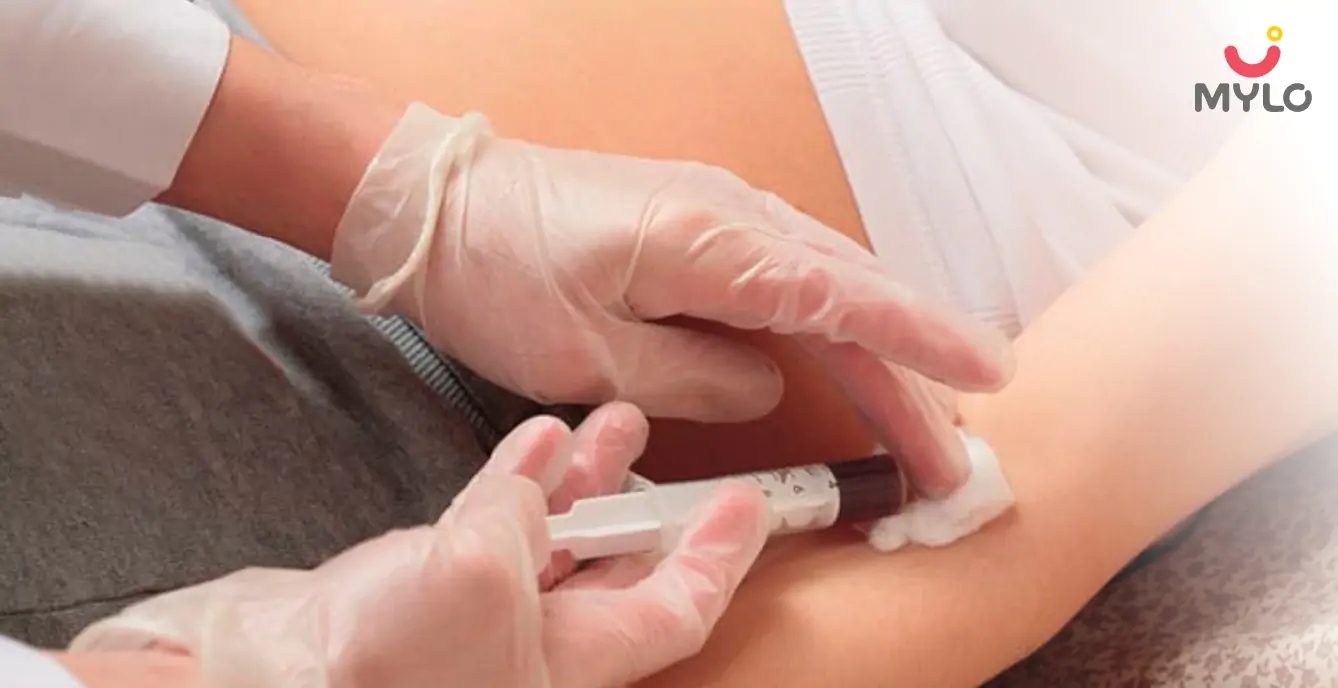
Scans & Tests
Double Marker Test: Everything You Need to Know for a Healthy Pregnancy
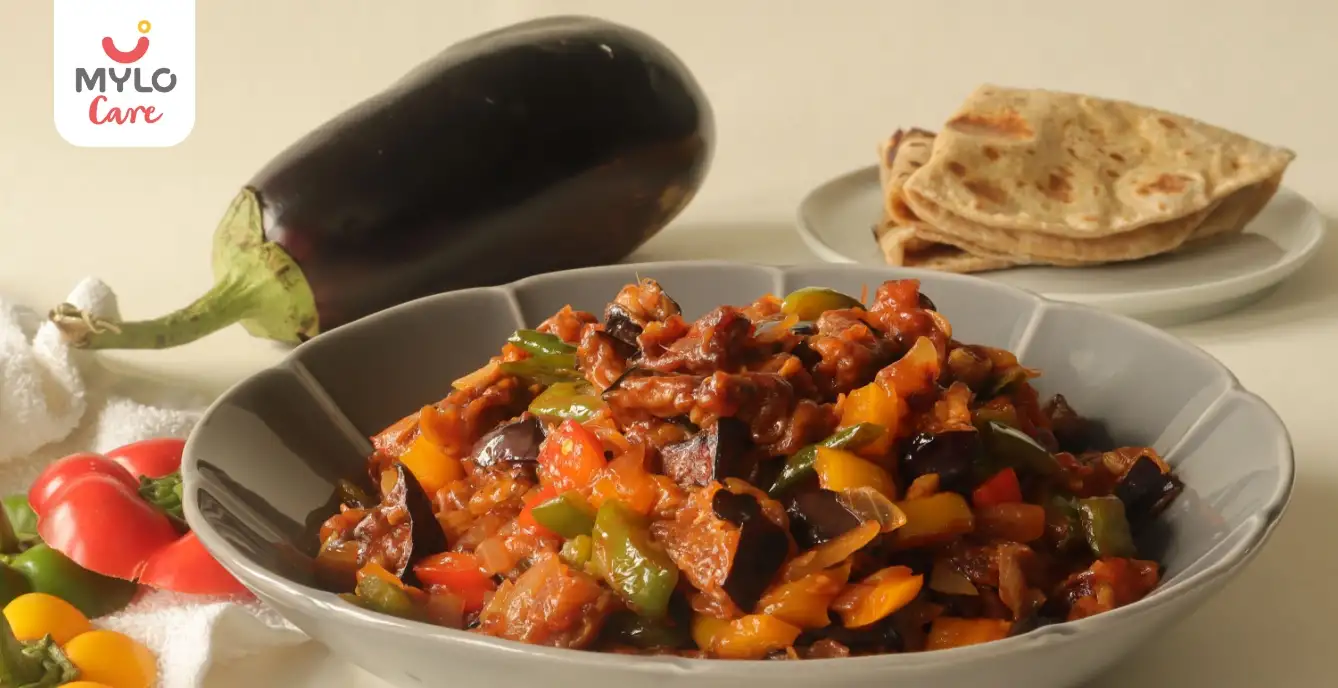
Food Cravings
The Pros and Cons of Consuming Brinjal in Pregnancy
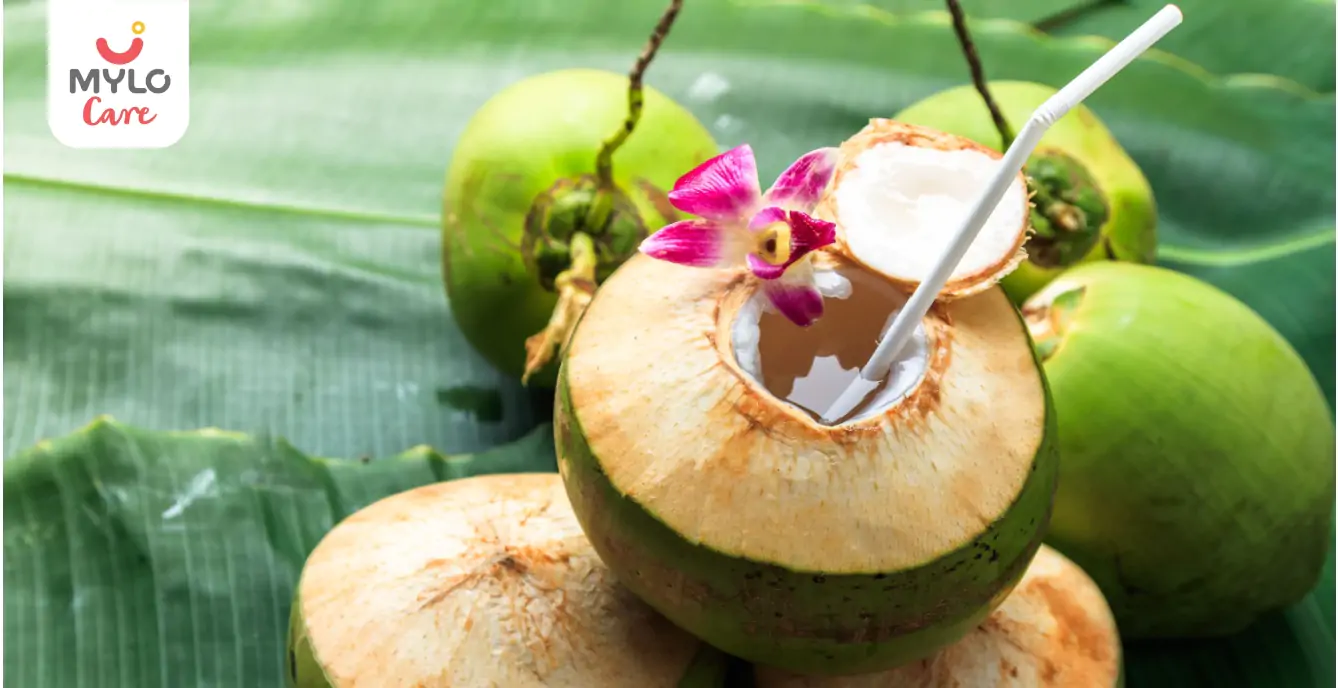
Why You Should Consider Drinking Coconut Water During Pregnancy?

Allergies
Sneezing During Pregnancy: Causes, Risks and Treatment

Comfort vs. Style: The Pros and Cons of Wearing Heels During Pregnancy
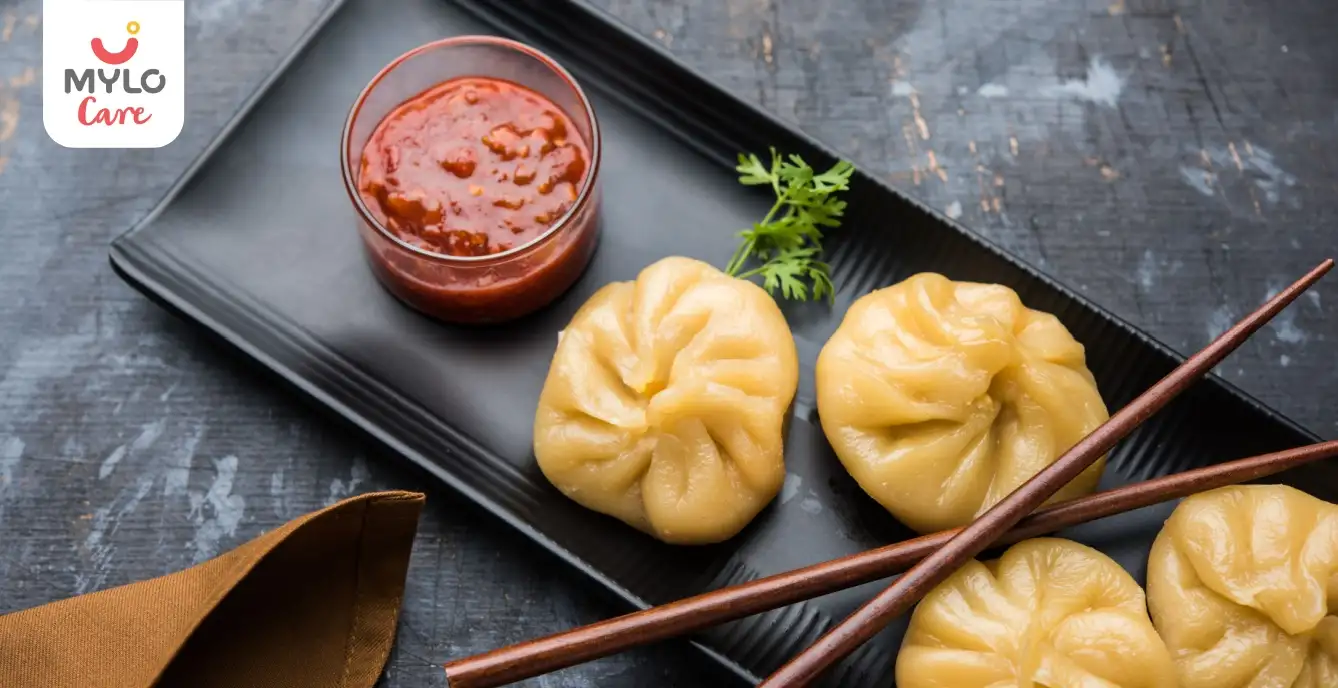
Food Cravings
A Mom-to-Be's Handbook to Safely Savoring Momos in Pregnancy
- Chicken During Pregnancy: The Ultimate Guide to Safe and Nutritious Eating
- How To Prepare Food For Your Infant/Toddler Safely? Here Are Some Tips That You Must Not Forget While Preparing Food
- Lactational Amenorrhea Method: A Safe and Effective Contraception for Postpartum Moms
- What to Do to Help Fall Asleep Faster During Pregnancy?
- Home Remedies to Control High Blood Pressure in Pregnancy
- Pizza During Pregnancy: Cravings, Comfort, and Caution for Moms-To-Be
- Baby Milestones for Development, Growth & Health in the First Year
- The Ultimate Collection of International Women's Day Quotes
- The A-Z Guide to Identifying Vegetables Name in English for Children
- Grapes in Pregnancy: The Ultimate Guide to Benefits & Precautions
- Postpartum Exercise: What to Know About Exercising After Pregnancy
- Baby Crawling: A Parent's Guide to Baby's First Moves
- Postpartum Diet Plan: Your Postpartum Nutrition Guide
- The Ultimate Guide to Crafting the Perfect Baby Photoshoot


AWARDS AND RECOGNITION

Mylo wins Forbes D2C Disruptor award

Mylo wins The Economic Times Promising Brands 2022
AS SEEN IN
















- Mylo Care: Effective and science-backed personal care and wellness solutions for a joyful you.
- Mylo Baby: Science-backed, gentle and effective personal care & hygiene range for your little one.
- Mylo Community: Trusted and empathetic community of 10mn+ parents and experts.
Product Categories
baby carrier | baby soap | baby wipes | stretch marks cream | baby cream | baby shampoo | baby massage oil | baby hair oil | stretch marks oil | baby body wash | baby powder | baby lotion | diaper rash cream | newborn diapers | teether | baby kajal | baby diapers | cloth diapers |




